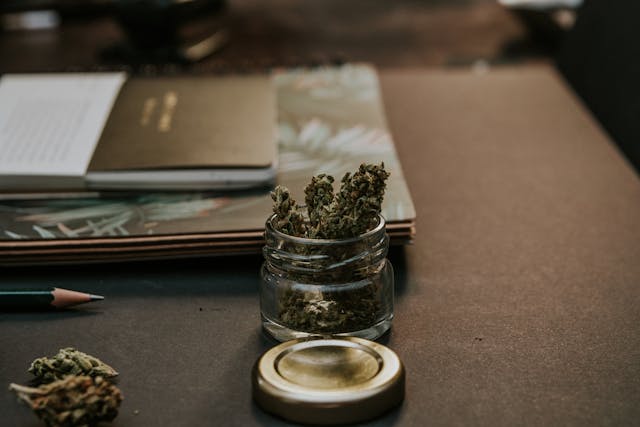
If you use medical marijuana and are planning to move or travel across state lines, there might be one important question on your mind: Can you transfer your medical marijuana license card to another state?
Unfortunately, the answer isn’t as simple as a yes or no. In the United States, medical cannabis programs are managed at the state level, which means each state sets its own rules and requirements.
This guide from, Malie Cannabis Clinic, explains what happens when you try to use your medical card in a different state and what steps you may need to take to stay compliant and access the care you need.
Medical Marijuana Reciprocity
Medical marijuana reciprocity is the term used when one state recognizes the medical marijuana authorization issued by another. In states that allow reciprocity, you may be permitted to purchase and possess cannabis with your out-of-state medical marijuana card.
However, this is not available everywhere, and the degree of access may be limited. States with reciprocity typically only allow visiting patients short-term access. That means if you plan to live in a new state permanently, you will usually need to apply for a medical marijuana card in your new state of residence.
States That Honor Out-of-State Medical Marijuana Cards
Some states allow non-residents to use their medical marijuana cards temporarily.

A few examples include:
- Hawaii: Allows visitors to apply for a temporary medical cannabis card that is valid for up to 60 days. You must register with the Hawaii State Department of Health before your trip.
- Nevada: Acknowledges valid medical marijuana cards from other states. However, if you're moving permanently, it’s better to apply for a Nevada card.
- Oklahoma: Offers temporary licenses for out-of-state cardholders that are valid for 30 days and renewable.
- Rhode Island: Allows out-of-state cardholders to possess and use medical cannabis but not to purchase it from dispensaries.
- Maine and Washington, D.C: They also have forms of reciprocity, but again, access may be limited depending on where you are.
It’s important to check the specific rules of the state you’re traveling to or moving to because laws change frequently.
What If You're Moving to a New State?
If you're planning to move permanently, you will most likely need to obtain a new medical marijuana card in your new state. States typically require medical marijuana patients to be residents before applying.
Here are some general steps:
- Establish Residency: Most states require proof of residency, like a driver's license or utility bill.
- Find a Qualified Medical Professional: You’ll need to consult with a doctor who is licensed in that state and who can certify your qualifying condition.
- Submit an Application: This usually involves an online application, uploading required documents, and paying a fee.
- Wait for Approval: Once approved, you’ll receive your new medical marijuana card in the mail.
Legal Issues to Watch Out For
It’s important to remember that even though medical marijuana is legal in many states, it is still illegal under federal law.

This creates complications when crossing state lines:
- Do Not Transport Cannabis Across State Lines. Even if both states have medical marijuana programs, transporting marijuana from one state to another is a federal offense.
- Leave your products behind and purchase new ones once you’re legally able to do so in your new state.
Another concern is that qualifying medical conditions differ from one state to another. For example, a condition that qualifies in California might not qualify in Texas. Always check the local laws of the state you're moving to before beginning the application process.
Can You Use a Digital Medical Card in Another State?
Some states offer digital or downloadable versions of medical marijuana cards. However, not all states recognize digital cards, especially from out-of-state visitors.
When visiting a dispensary, having a physical card or government-issued ID that matches your medical marijuana registration is often required.
What If Your New State Doesn't Allow Medical Marijuana?
If you are moving to a state that does not have a medical marijuana program, you won’t be able to legally access cannabis, even if you have a valid card from another state. In this case, you may need to speak to your healthcare provider about alternative treatments or consider whether the move is worth the potential impact on your health.
Additionally, some states only allow limited use of cannabis-derived products, like CBD oil with very low levels of THC. These laws tend to be much stricter and may only apply to very specific medical conditions.
Things to Consider Before You Move
Moving while relying on medical marijuana requires planning.

Make sure to:
- Check reciprocity rules in the state you’re visiting or moving to.
- Review application requirements ahead of time so you can begin the process as soon as you arrive.
- Talk to your current doctor and request copies of your medical records to bring with you.
- Budget for application and consultation fees, which can vary widely by state.
Staying Compliant While Accessing Medical Cannabis
Once you arrive in your new state, it’s essential to remain compliant with the local cannabis regulations. Laws about how and where you can use cannabis differ from state to state, even among those with medical marijuana programs.
For example, some states allow patients to grow a small number of cannabis plants at home, while others do not permit any personal cultivation. In some states, medical cannabis can be used in edibles or oils, but smoking marijuana may be prohibited.
Knowing the nuances of your new state’s laws helps protect you from unintentionally violating local policies. It’s also a good idea to keep documentation of your diagnosis, your card, and your doctor’s recommendation on hand.
This is especially important if you live in a state with stricter enforcement policies. Staying informed and organized will help ensure continued access to your medication while keeping you on the right side of the law.
Bottom Line
Transferring your medical marijuana card to another state isn't usually possible in the traditional sense. Instead, you may be able to use your card temporarily through a state’s reciprocity program, or you’ll need to apply for a new card once you've established residency in your new home state.
Because rules differ so widely, always research ahead of time to avoid lapses in access or legal trouble. Planning your move with these considerations in mind can help ensure a smooth transition and continued access to the treatment you depend on. If you have any questions, Malie Cannabis Clinic is here to help!